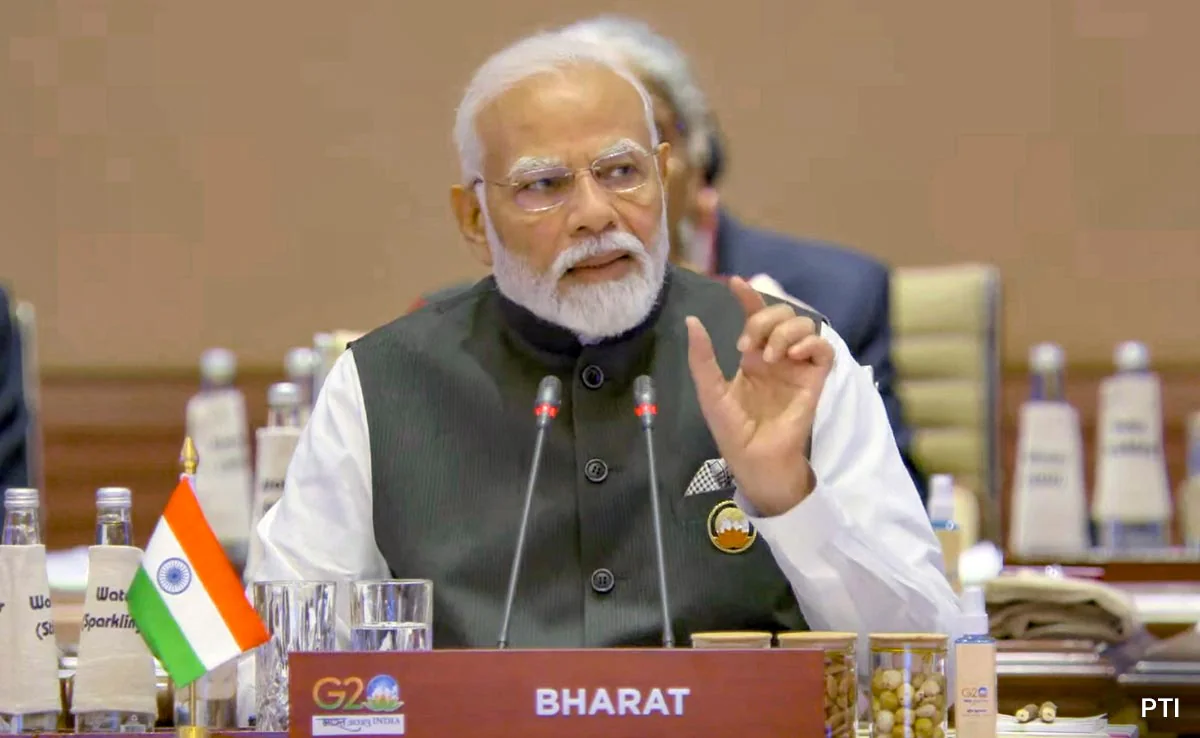During its G20 presidency, India successfully reached a significant milestone with the unanimous acceptance of the New Delhi Declaration by all participating leaders.
This achievement was made possible through India’s revision of the wording pertaining to the situation in Ukraine. Multiple rounds of negotiation have taken place, although a consensus about the language on Ukraine has not been reached. On Saturday, India presented a fresh statement regarding the ongoing crisis in Ukraine, which was subsequently included in the joint statement. Ladies and gentlemen, we have recently received positive news. During the second session of the summit, Prime Minister Modi expressed his gratitude for the diligent efforts of our teams and the collective cooperation of all participants, which has resulted in a consensus on the New Delhi G20 Summit Leaders Declaration. His remark was delivered briefly and aired, with the Prime Minister addressing in Hindi.
Regarding the conflict in Ukraine, during the deliberations in Bali, we restated our respective national stances and the resolutions endorsed by the United Nations Security Council and the United Nations General Assembly.
We emphasised the imperative for all nations to adhere to the fundamental objectives and principles outlined in the entirety of the United Nations Charter. In accordance with the principles outlined in the United Nations Charter, it is imperative for all nations to abstain from employing or threatening to employ force as a means of pursuing territorial expansion at the expense of another state’s territorial integrity, sovereignty, or political independence. The utilisation or potential employment of nuclear weapons is deemed unacceptable in academic discourse.
The topic under discussion is the conflict in Ukraine.
The adverse consequences of the war in Ukraine have been emphasised, particularly in relation to global food and energy security, supply chains, macro-financial stability, inflation, and growth. These factors have created a complex policy landscape for countries, particularly those that are still grappling with the aftermath of the COVID-19 pandemic and the economic upheaval it has caused, hindering their progress towards achieving the Sustainable Development Goals (SDGs). Various perspectives and evaluations were seen on the given circumstances.
The contemporary period should not be characterised by conflict.
We urge all nations to adhere to the fundamental tenets of international law, which encompass the preservation of territorial integrity and sovereignty, the observance of international humanitarian law, and the maintenance of the multilateral framework that secures global peace and stability. The peaceful resolution of conflicts, along with endeavours to handle crises, as well as the implementation of diplomacy and conversation, are of utmost importance. We are committed to coming together to tackle the negative consequences of the war on the worldwide economy. We are open to any appropriate and beneficial efforts that contribute to achieving a comprehensive, fair, and long-lasting peace in Ukraine. This peace should uphold all the objectives and principles outlined in the United Nations Charter, which aim to promote peaceful, amicable, and cooperative relations between nations, guided by the belief in a shared destiny and unity among all people on Earth.
The resolution declares that the current era should not be characterised by warfare.
